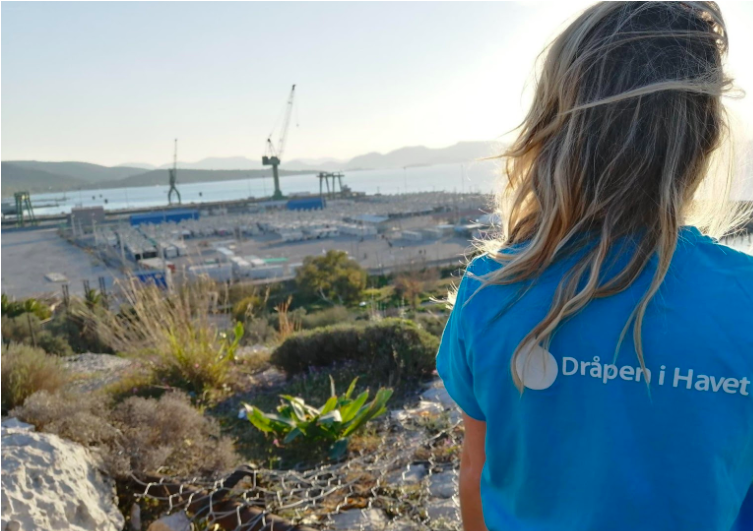15th April 2021
In late February, I began a volunteering stint at Skaramagas, a refugee camp on the Mediterranean coast just outside Athens. As I returned home this week, I left a place, which was supposed to be a haven, but is now full of fear. It is one of the biggest refugee camps in Greece, housing 3,000 people fleeing war zones in Syria, Afghanistan, and elsewhere. Many of them came here after Moira, Europe’s most populated and overcrowded camp on the island of Lesbos (Greece), was tragically destroyed by fires in September last year. On April 8, Greece’s Ministry of Migration and Asylum announced the closure of Skaramagas, giving its residents one month’s notice for their dispersal stating the all too familiar requirement of finding somewhere else to go.
In one of my last conversations with a camp inhabitant, I queried whether there could be plans to find better accommodations for the men, women, and children (the latter of which accounts for 41% of residents) of Skaramagas.
I spoke to a young man who fled a war zone to fulfill his ambition to study engineering in Europe. Before I even finished my sentence, he interjected: “No, that’s never the case! It will be bad for us, for sure. They don’t care about us, especially about our psychological wellbeing.” It was deeply touching to hear hopelessness and defeat in the voice of a young man beset by broken promises and too many burdens.
I volunteered with ‘A Drop in the Ocean’ (Dråpen i Havet), a Norwegian humanitarian organization, operating in the Balkans since 2015 to meet the basic needs of forced migrants escaping war, disasters, and persecution.
Residents of the camp await their asylum claims to be processed, hoping for a better future. This debilitating uncertainty usually lasts for years. And Covid restrictions have slowed down the already complex bureaucratic asylum system, resulting in even lengthier waits for the displaced population of Skaramagas. During my short spell with ‘A Drop in the Ocean’, I helped to fill the long void with psychosocial activities and support, specially dedicated to minors, the most vulnerable group. The reasons for the camp’s demise remain unclear but it is believed that the land, near the Port of Skaramagas, has been sold for commercial purposes.
I have returned to the UK but what about the refugees? Many of them have been living there for more than five years, attempting to integrate with all the difficulties of people confined literally at the margins of a society in legal limbo, expected now just to pack up and go.
But where would they go? It is difficult to imagine, yet Skaramagas is apparently one of the better refugee camps in Greece, even if conditions are crowded. Families are housed in converted shipping containers – generally two families per container. Each has two rooms, a bathroom and a kitchen. I learnt that the plight of refugees is far worse in other camps. One woman, nine months pregnant, resorted to sleeping rough in parks in Athens. For all its flaws, Skaramagas represents a little hope and stability among the great uncertainty asylum seekers suffer during the process of their claims.
The residents have mounted protests inside the camp and outside the perimeter, blocking the main road. So far the protests have been peaceful but tense with internal conflicts among the residents and anger among drivers finding their path blocked on the main road.
They fear returning to living in tents or maybe even worse. Among the options for relocation, there are other camps already at a bursting point located far from the city center. Removal would cause further disadvantage in accessing resources, with the endless challenge of starting over and rebuilding life again – new facilities, new area, new people, yet the same destructive uncertainty.
Everyone who has worked in a refugee camp knows well that there is no easy answer to the complex problems faced by the residents, and no matter how good their intentions are, problems are bound to emerge. However, every action undertaken in the field should take into consideration the main principle of humanitarian aid: “Do No Harm”.
The purpose of refugee reception is to give a chance to asylum seekers to rebuild their lives after trauma, which I feel is really being undermined in Skaramagas at the moment. In this instance, we should ask whether we are doing more harm than good by further deepening feelings of frustration, hopelessness, and uncertainty. We urgently need to change the story and give back some of the lost hope to these destitute but promising voices.

